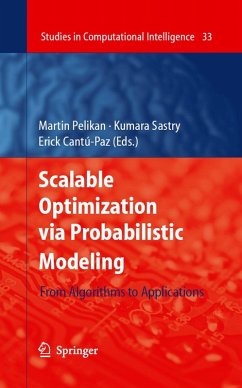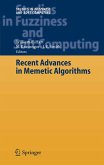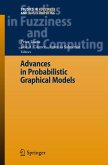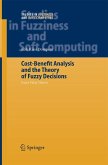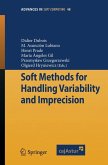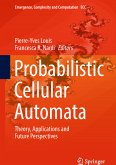David E Goldberg, University of Illinois at Urbana-Champaign
This book is an excellent compilation of carefully selected topics in estimation of distribution algorithms---search algorithms that combine ideas from evolutionary algorithms and machine learning. The book covers a broad spectrum of important subjects ranging from design of robust and scalable optimization algorithms to efficiency enhancements and applications of these algorithms. The book should be of interest to theoreticians and practitioners alike, and is a must-have resource for those interested in stochastic optimization in general, and genetic and evolutionary algorithms in particular.
John R. Koza, Stanford University
This edited book portrays population-based optimization algorithms and applications, covering the entire gamut of optimization problems having single and multiple objectives, discrete and continuous variables, serial and parallel computations, and simple and complex function models. Anyone interested in population-based optimization methods, either knowingly or unknowingly, use some form of an estimation of distribution algorithm (EDA). This book is an eye-opener and a must-read text, covering easy-to-read yet erudite articles on established and emerging EDA methodologies from real experts in the field.
Kalyanmoy Deb, Indian Institute of Technology Kanpur
This book is an excellent comprehensive resource on estimation of distribution algorithms. It can serve as the primary EDA resource for practitioner or researcher. The book includes chapters from all major contributors to EDA state-of-the-art and covers the spectrum from EDA design to applications. These algorithms strategically combine the advantages of genetic and evolutionary computation with the advantages of statistical, model building machine learning techniques. EDAs are useful to solve classes of difficult real-world problems in a robust and scalable manner.
Una-May O'Reilly, Massachusetts Institute of Technology
Machine-learning methods continue to stir the public's imagination due to its futuristic implications. But, probability-based optimization methods can have great impact now on many scientific multiscale and engineering design problems, especially true with use of efficient and competent genetic algorithms (GA) which are the basis of the present volume. Even though efficient and competent GAs outperform standard techniques and prevent negative issues, such as solution stagnation, inherent in the older but more well-known GAs, they remain less known or embraced in the scientific and engineering communities. To that end, the editors have brought together a selection of experts that (1) introduce the current methodology and lexicography of the field with illustrative discussions and highly useful references, (2) exemplify these new techniques that dramatic improve performance in provable hard problems, and (3) provide real-world applications of these techniques, such as antenna design. As one who has strayed into the use of genetic algorithms and genetic programming for multiscale modeling in materials science, I can say it would have been personally more useful if this would have come out five years ago, but, for my students, it will be a boon.
Duane D. Johnson, University of Illinois at Urbana-Champaign
Dieser Download kann aus rechtlichen Gründen nur mit Rechnungsadresse in A, B, BG, CY, CZ, D, DK, EW, E, FIN, F, GR, HR, H, IRL, I, LT, L, LR, M, NL, PL, P, R, S, SLO, SK ausgeliefert werden.

